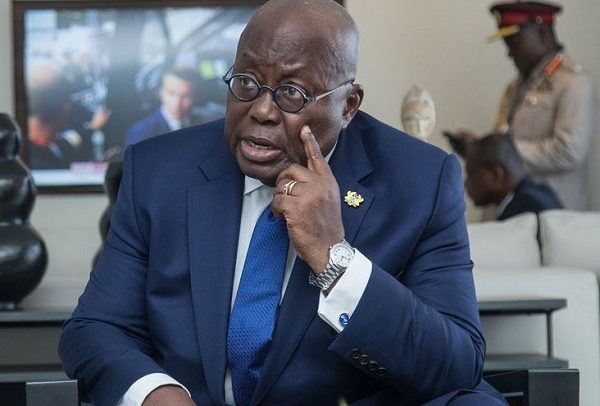President Nana Akufo-Addo
President Akufo-Addo has assured that the country’s deal with the International Monetary Fund (IMF) will be implemented with discipline, intimating that measures will be taken to increase domestic savings, control public expenditure, and boost private-sector investment.
For him, the $3 billion funding package will lay the groundwork for Ghana’s economy to be repositioned, allowing the government to better control inflation and interest rates.
Speaking in an interview at the Qatar Economic Forum in Doha yesterday, President Akufo-Addo stated that his government would work quickly to bring the fiscal deficit, which is mandated by law to be at 5%, to a reasonable level, conceding that it was already far beyond the mark.
“Rationalisation of our expenditure, rationalisation of government expenditure is something that we have given assurance. Domestic revenue mobilisation is absolutely critical for us and already we are seeing signs,” he added.
He stated that Ghana has prepared itself to re-enter the international market, which had been a source of funding for the country during the first three or four years of the government, but added that the government was not in a hurry to do so.
“There is no rush, but obviously why not take advantage of global savings. It makes a lot of sense to me. We will try as much as possible to maintain the discipline which is required and the most important requisite for a successful programme,” the President stressed.
He noted that prior to the COVID outbreak, the Ghanaian economy had achieved microeconomic stability and was experiencing significant growth.
According to him, the COVID-19 pandemic, followed by the Russia-Ukraine disaster, had a significant impact on Ghana’s economy.
“Suddenly, we were facing major challenges on our balance of payment; our currency was in steep decline, interest rates went out of the window, inflation… and that is what forced us to seek the assistance of the Fund,” he intimated.
He was optimistic that the IMF deal would help the country to regain the macroeconomic stability, interest rate, inflation and “finally to position us to be able to go back to the international capital market.”
President Akufo-Addo stated that the country, as the world’s second-largest cocoa producer, wants to begin producing its own chocolate in order to raise revenue from the business, but the process has proven “daunting.”
According to him, the government is confident in achieving new European Union requirements for cocoa exports and is working to expand into new markets for cocoa in Asia and other regions.
By Ernest Kofi Adu


